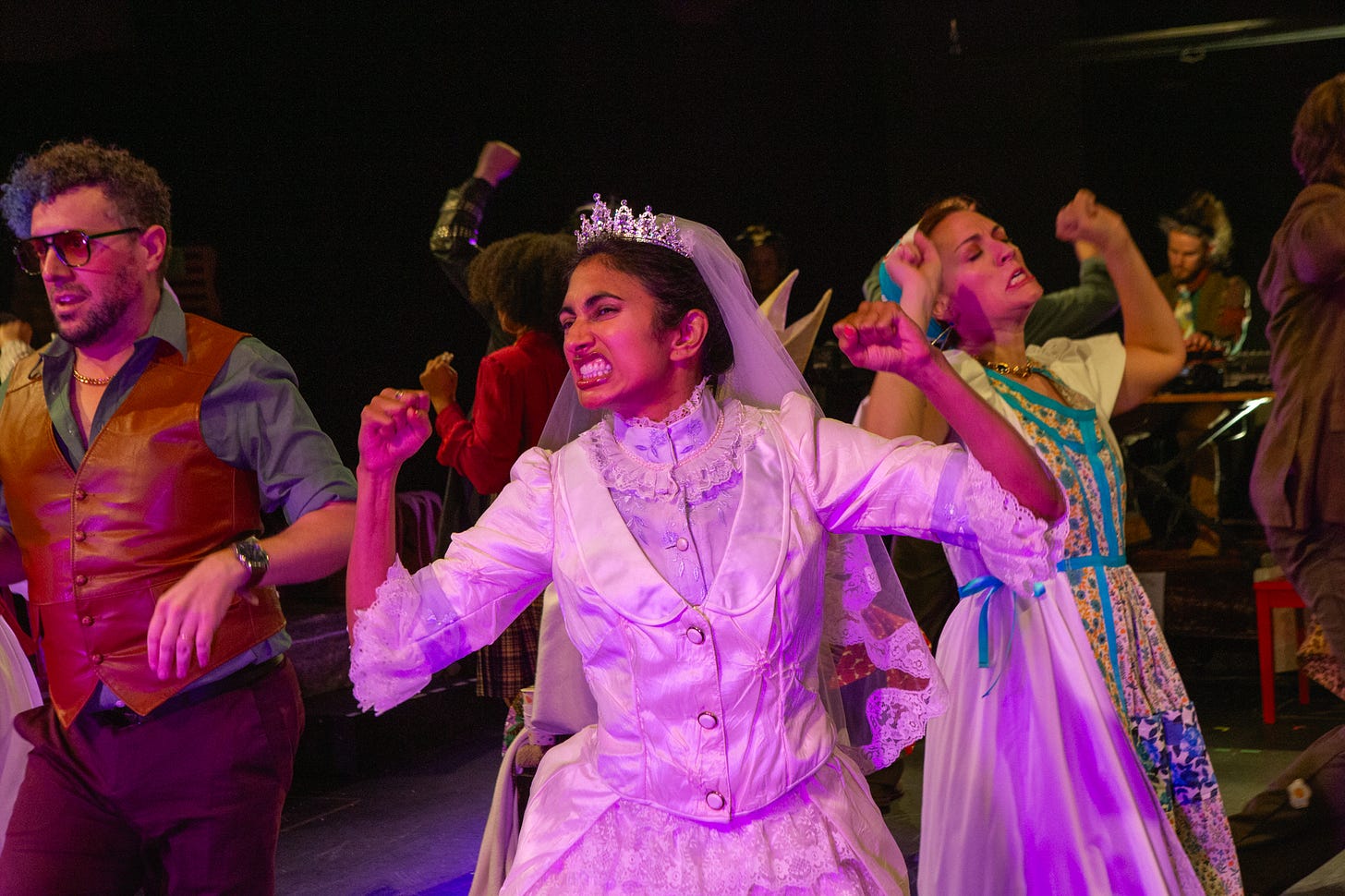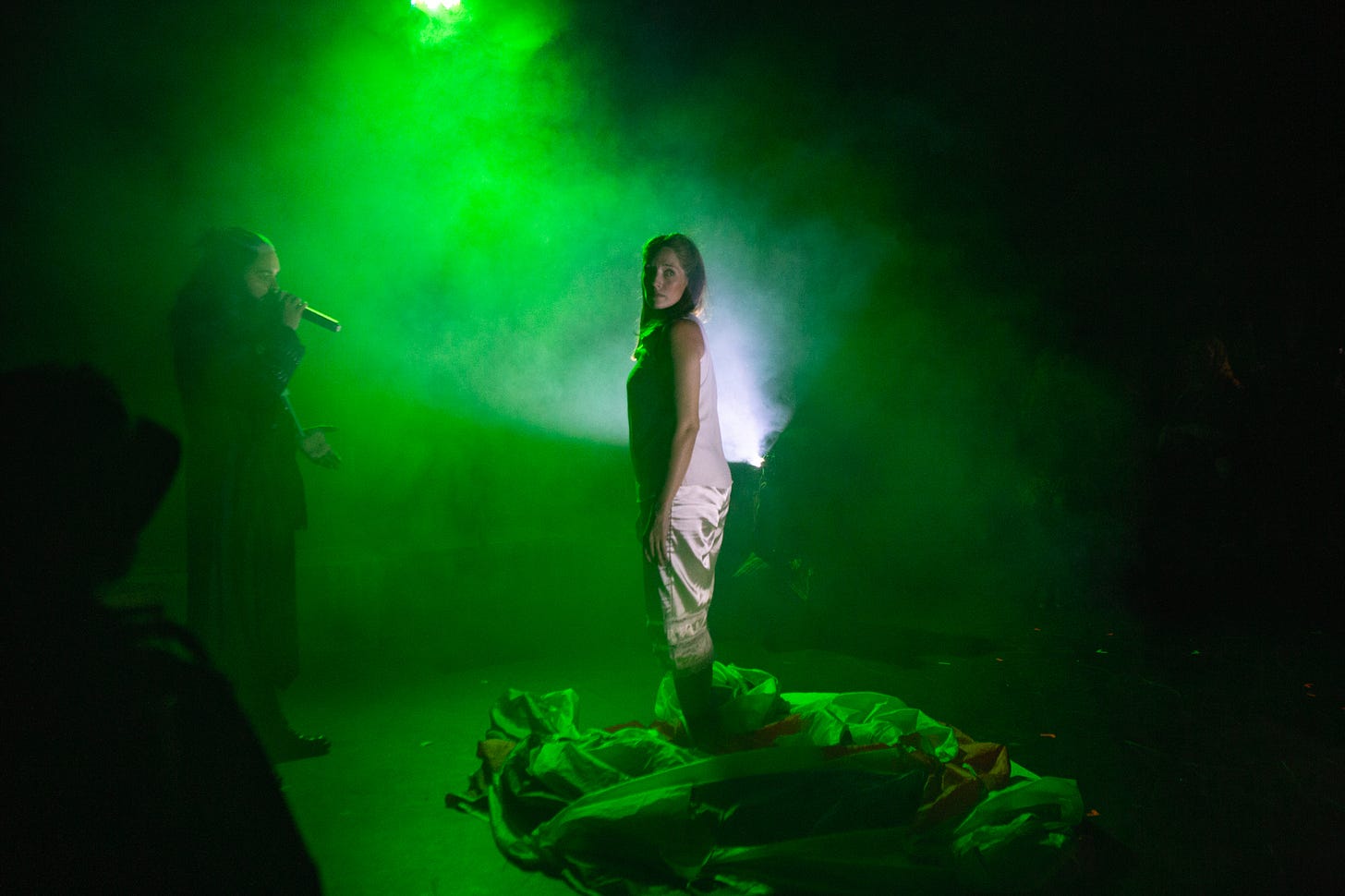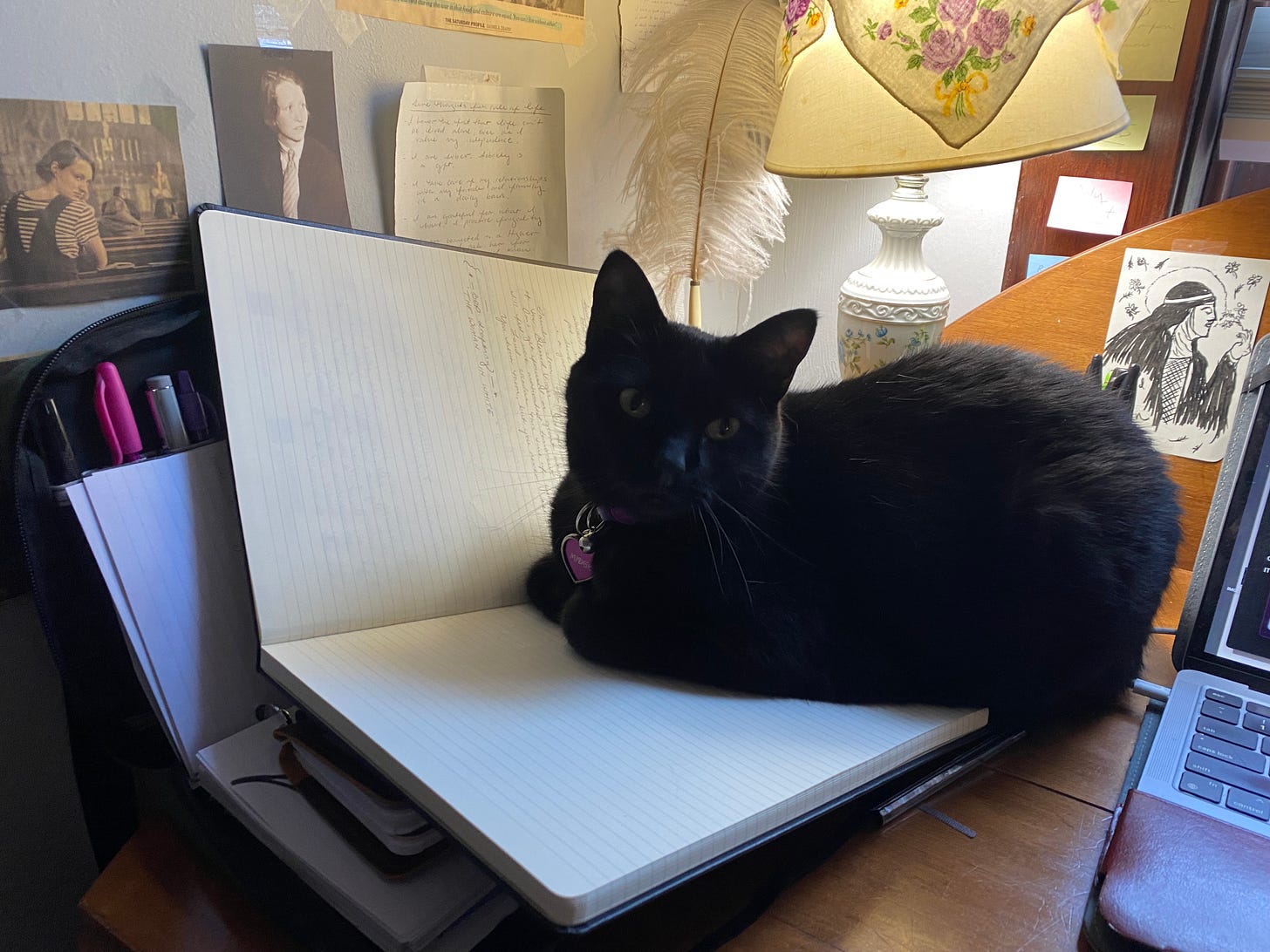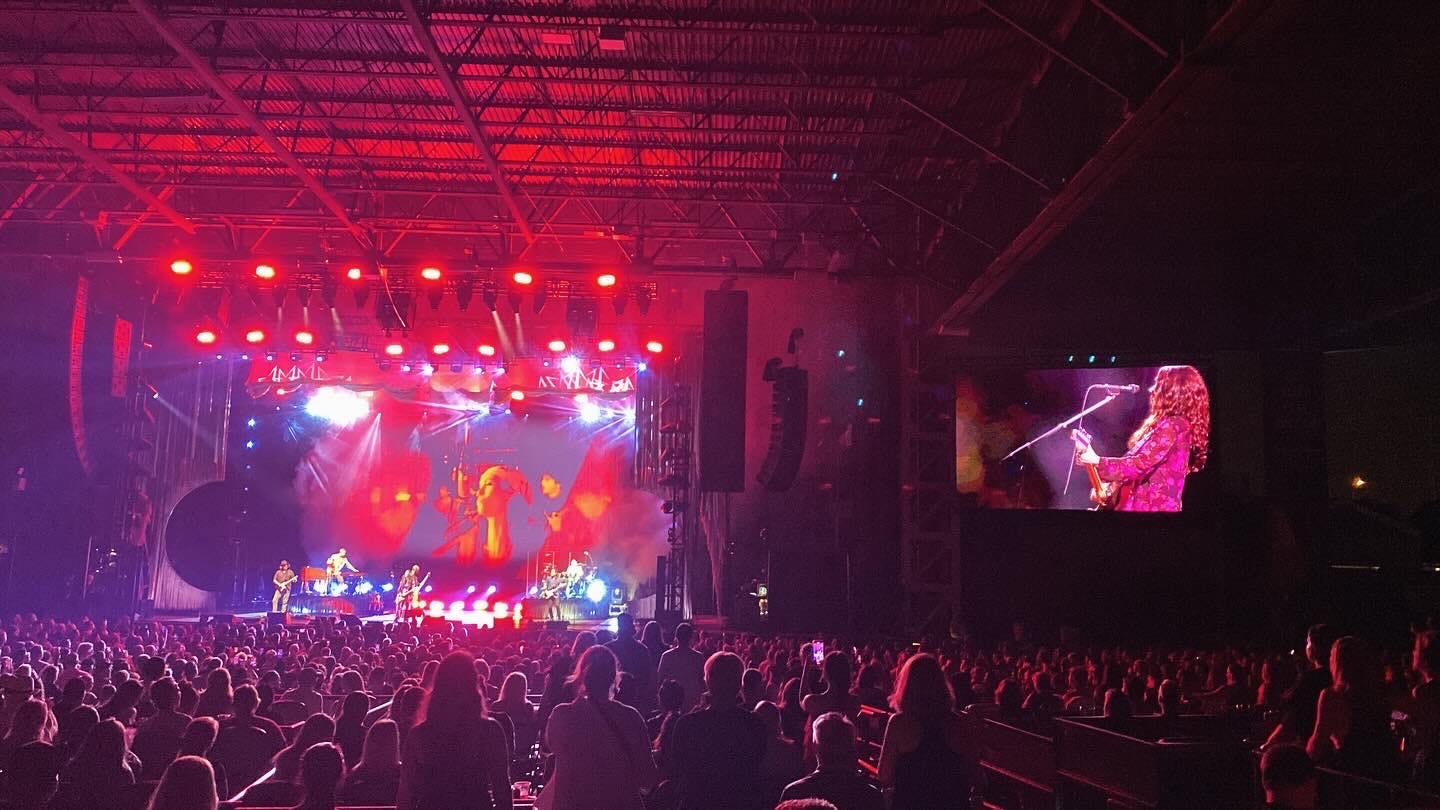Articulating how you make what you make.
Here is a (belated) Letter from the Homestead for July 2024. ✍️ Inside: How to Write Weird Plays, dasvidanya to Romanov Family Yard Sale, and a sweaty prison play.
Emily Dickinson called her Amherst home “The Homestead.” I lovingly call my apartment in St. Louis the same thing (although I definitely get out more than Dickinson). This monthly newsletter is my attempt to work through what it feels like to put down roots as a writer in my own Homestead.
How to Write Weird Plays
How often do we sit down to articulate how we make what we make? Recipe authors are good at this. I’ve always loved how Julia Child’s Mastering the Art of French Cooking explains not just how you cook something simple like an omlette, but why we do it a certain way. (She really can teach you how to make a perfect omlette.)
As part of a grant from the Regional Arts Commission of St. Louis, I got to spend some time this past month figuring out how to talk about the mechanics of my playwriting practice. I say often that I write “weird” plays. What I mean is I don’t spend much time in realism, and I prefer making pieces that are genre-averse. It’s just what I like, that’s all.
But I do have some thoughts about how to make this kind of work. The result is this free, downloadable workbook, How to Write Weird Plays.
This 37-page workbook is not a magnum opus. It’s just a PDF, and, like a play, it’s meant to be a flash in the pan—not a final word. That’s what I appreciate about my medium the most: a play zooms by like comet and then disappears. It’s proof that things don’t need to be permanent to have value. Nothing is permanent anyway.
I was surprised by how much I enjoyed putting this together. It gave me space to declare a few opinions, and since the format is a free workbook, I know that readers can take those opinions with a grain of salt.
Saying dasvidanya to Romanov Family Yard Sale
In my last Letter from the Homestead, I wrote about how the purgation of a yard sale can be an antidote to years of rage:
During the production process of this play, I realized how much anger I’d been carrying around for the past four(ish) years. Getting rid of a bunch of stuff in a yard sale helped. The play had a marvelous three-weekend run here in St. Louis, and I’m grateful all over again to be a playwright in this city.
I learned a great deal about myself during this process. When you watch a play you’ve written go before an audience several times, you’re bound to learn a few things. You start to watch for your favorite (and least favorite) moments. You test yourself to see if you know the characters’ lines. You feel guilt about the extra stuff you should’ve cut. Most of all, you watch your skin to see if you still get gooseflesh from moments you were shocked to have written.
In the play, there is a moment where the Romanovs create an absurd religion called The Church of the Great Babooshka. Except it’s not absurd, not really. Yes, the core image of the religion is a giant parachute that would’ve been used in elementary school P.E. class—but that’s because it’s a religion based on simple joy.
I grew up going to churches that partook in weekly communion. Little trays of grape juice cups and broken pieces of (ironically) matzo crackers are seared into my tactile memories of liturgy. When I step foot in old evangelical churches with pews (not often), I love to see the inch-wide cup holders for the used communion sippers—a place in the pew to put your empty cup, retrieved by church ladies after the service.
I was shocked to have written a communion service into the ridiculous Church of the Great Babooshka. But I shouldn’t have been shocked. Of course I would write out words of institution that make more sense to me than what I hear in “real” churches.
This is what I wrote:
On the night that the Great Babooshka hit her rock bottom, she told herself to do the making of a sandwich. But she had no baloney or cheese, so she could only do the eating of two pieces of bread.
(the bread is blessed, and a bell rings)
And on the night that our Great Babooshka understood that there was nowhere to go but up, she told herself to do the pouring of a glass of milk. But all her milk was stolen by Bolsheviks, so she only had water.
(the water is blessed, and a bell rings)
Our Great Babooshka teaches us that the goal is not always the pursuit of the happiness because sometimes the happiness is not what we need. Sometimes we are only needing two pieces of bread and a glass of water.
(she blesses us)
Sometimes we only need a glass of water and two pieces of bread—because happiness isn’t always the thing we need. Maybe we just need to be awake and put something in our stomachs.
I felt relaxed each night after this moment in the play. I felt proud. I saw how a silly playwright can write her own words of institution, too.
***
Interested in reading the play? I’d love for you to visit the Church of the Great Babooshka. I’m linking below a copy of the script.
What I’m reading this month…
I’ve struggled with reading fiction or poetry this month. My mind has been too wrapped up in Romanov Family Yard Sale (and then Gatsby of a Thousand Faces, my play that premiered in a men’s prison this past week). Below are a few titles that ended up on my nightstand in July.
Daily Rituals: How Artists Work by Mason Currey. I used to assign this book in a writing class I taught at Baylor many years ago. It’s exactly what the title says—a catalogue of rituals from all manner of artists. What I appreciate about this book is the reminder that many of the superhuman artists of the past century were literally fueled by drugs. The entry on Auden describes how he took speed each morning with his coffee, wrote like a rabbit for several hours, drank away the whole afternoon and evening, and then took a tranquilizer to sleep. (For myself, I’m hoping that writing sober adds some years to my life.)
Mudhouse Sabbath: An Invitation to a Life of Spiritual Discipline by Lauren F. Winner. This is one of those early 2000’s cool kid evangelical books I still love (even though I’m no evangelical). This is a comfort read for me.
An Altar in the World: A Geography of Faith by Barbara Brown Taylor. Early 2000’s readers of Lauren Winner’s books grow up to love Barbara Brown Taylor, I figure. BBT is a professor and a former Episcopal priest, and this book is about encountering elements of faith in the world outside the church. I’ve been listening to the audiobook of this title before bed at night.
How I made money this month $$$
I believe freelance artists should be more upfront about how they support themselves financially, rather than maintaining the illusion that they are fully supported by their art (they usually aren’t). This is me attempting to live out that principle. So, here are all the ways I brought in money to the Homestead for the month of July.
Teaching artist work for Prison Performing Arts. Teaching a weekly writing workshop on Zoom and teaching Spoken Word regularly inside a men’s prison.
Play commission fee. Was paid my play commission for Romanov Family Yard Sale.
Paid Substack subscriptions. Thank you to all of my paid subscribers. It means the world to me that you make a financial contribution to my work.
A Sweaty July ☀️
I’m a big sweater, and I sweat a lot this month. This past week, the Prison Performing Arts team put up my play Gatsby of a Thousand Faces at Missouri Eastern Correctional Center. We sweat out all our toxins in a 90 degree, un-air conditioned gym. Not sure I’ve never sweat that much in my life. In the end, we made something really special with the MECC artists, but, whew, that heat was rough.
Thankfully not as hot as a men’s prison gymnasium, the Alanis Morisette concert was like going to church. I’m grateful to be alive at the same time as Mother Alanis.
It’s August. Well, glory.
Thank you, as always, for reading these letters.
Yours,
Courtney, Mistress of the Homestead, and Noble Midge the Cat 🐈⬛












